Auction Export in Nigeria: Your Guide to Importing US Vehicles

by Counseal Team
Updated March 18, 2024
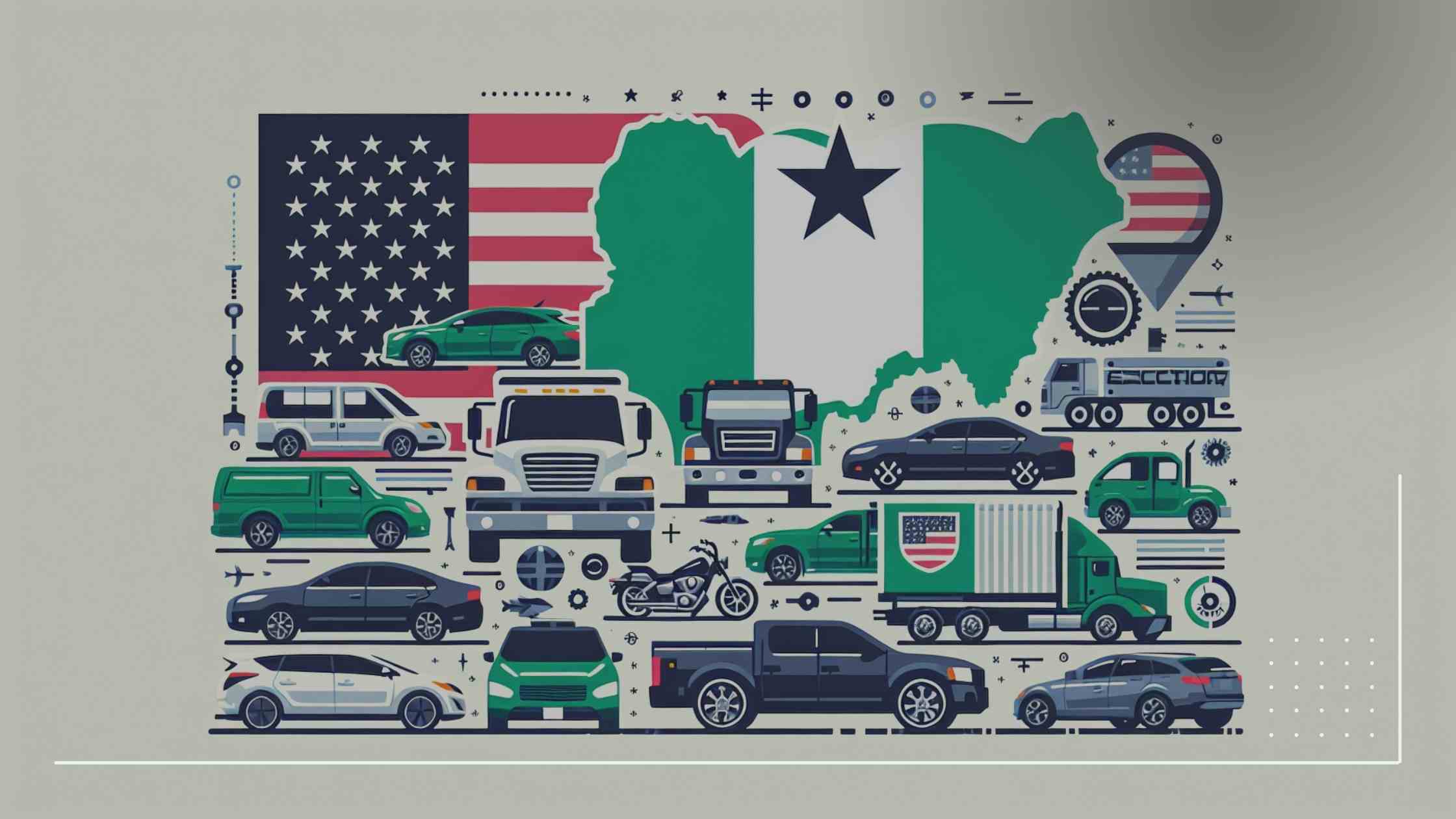
What is Auction Export?
First off, let’s break down what Auction Export is all about. Essentially, Auction Export is an innovative online marketplace that bridges the gap between buyers, be they everyday consumers or savvy dealers, and vehicle auctions taking place across the United States.
Think of it as a digital auction house, where you can browse and bid on an array of vehicles – from sleek sedans and rugged trucks to versatile SUVs and zippy motorcycles – all from the comfort of your office or home in Nigeria.
This virtual platform has revolutionised the way Nigerians access, bid, and purchase vehicles from U.S. auctions. But what exactly does this mean for you, the Nigerian buyer? Let’s delve into the nitty-gritty.
Diverse Inventory at Your Fingertips
One of the standout benefits of Auction Export is the sheer diversity of its inventory. Whether you’re hunting for a classic American muscle car, a reliable Japanese compact, or an upscale European luxury vehicle, Auction Export has got you covered. And the best part? You can access this extensive range of vehicles without stepping a foot outside Nigeria. It’s like having the world’s largest car lot right at your fingertips!
Competitive Pricing: The Auction Advantage
Price, as we all know, is a crucial factor when purchasing a vehicle. With Auction Export, you’re not just getting a wide selection of cars; you’re also tapping into the competitive dynamics of auctions. What does this mean for you? Simply put, there’s a high chance you’ll snag a vehicle at a price lower than the conventional market rate. And who doesn’t love a good bargain?
Streamlined Purchase and Shipping Process
Remember the days when buying a car from abroad involved endless paperwork, complicated procedures, and a healthy dose of stress? Well, Auction Export has turned the tables on this. The platform provides a streamlined process for purchasing and shipping, cutting through the red tape and simplifying the entire process. From the moment you place a winning bid to the time your vehicle arrives at your chosen Nigerian port, Auction Export takes care of the logistics, leaving you with more time to focus on what matters most – your business.
So there you have it.
Auction Export offers Nigerians like you a practical, cost-effective, and hassle-free way to purchase vehicles from U.S. auctions. As we navigate the increasingly digital world of business, platforms like these are not just options; they’re necessities. And as a Nigerian myself, I can attest to the game-changing benefits Auction Export brings to the table. Happy bidding!
- Navigating the Auction Export Website
- Diving Into the Depths of Auction Export: Scams and Red Flags
- Trustpilot Reviews: The Good, The Bad, and The Ugly
- Legal and Documentation Requirement
- Customs Clearance: The Vital Paperwork and Procedures
- Expert Tips and Recommendations
- Auction Export in Nigeria: Sailing Schedule
- Frequently Asked Questions
Navigating the Auction Export Website
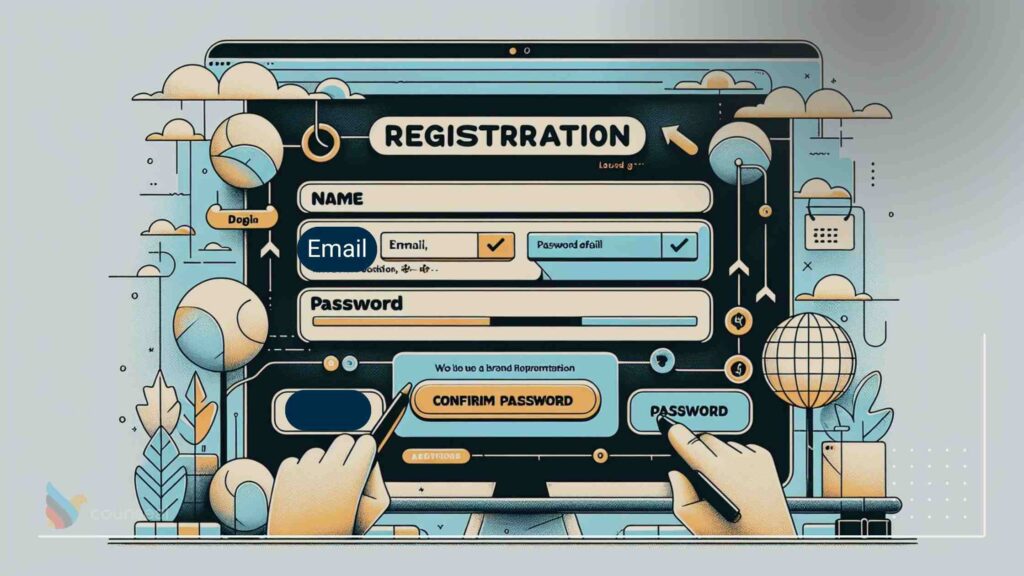
1. The Registration Process
Registering on the Auction Export website is your first step towards an exciting journey of car ownership. But, how do you go about it? It’s simpler than you think.
- Start by clicking on the ‘Register’ button on the top right of the Auction Export homepage.
- Fill out the required fields with your personal information. Remember, honesty is the best policy here.
- Voila! You’re all set.
This ease of registration is a testament to Auction Export’s customer-centric approach, allowing you to kickstart your journey in no time.
2. Using Filters to Your Advantage
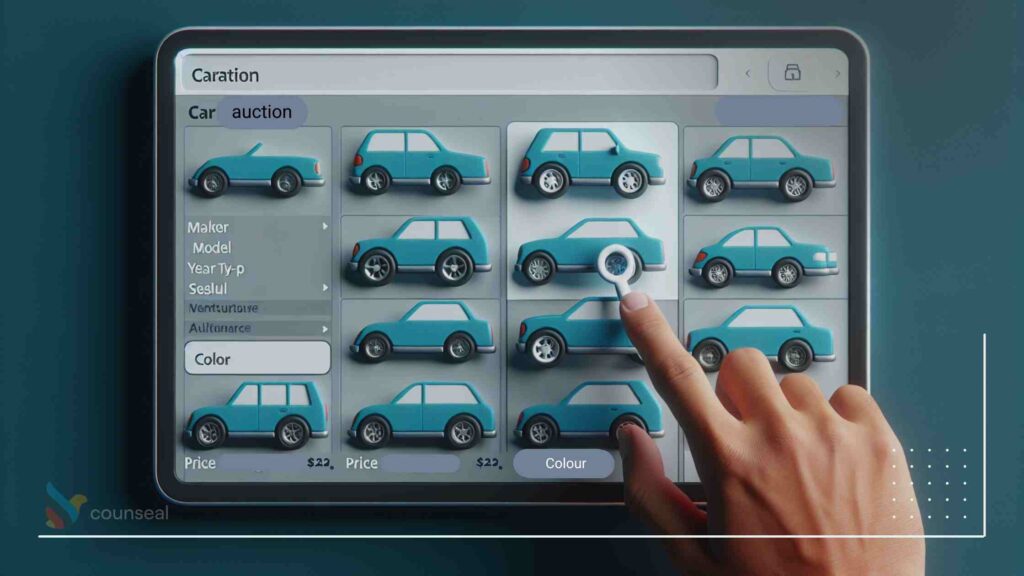
Now that you’re part of the Auction Export community, it’s time to get down to business. And by business, we mean finding your dream car.
The website offers a plethora of search filters to help you streamline your search. You can narrow down your preferences by make, model, year, and even condition. Want a 2010 Toyota Camry in mint condition? Auction Export got you covered.
Remember, using these filters effectively can be your secret weapon to finding the best deals on the platform.
3. The Bidding Process
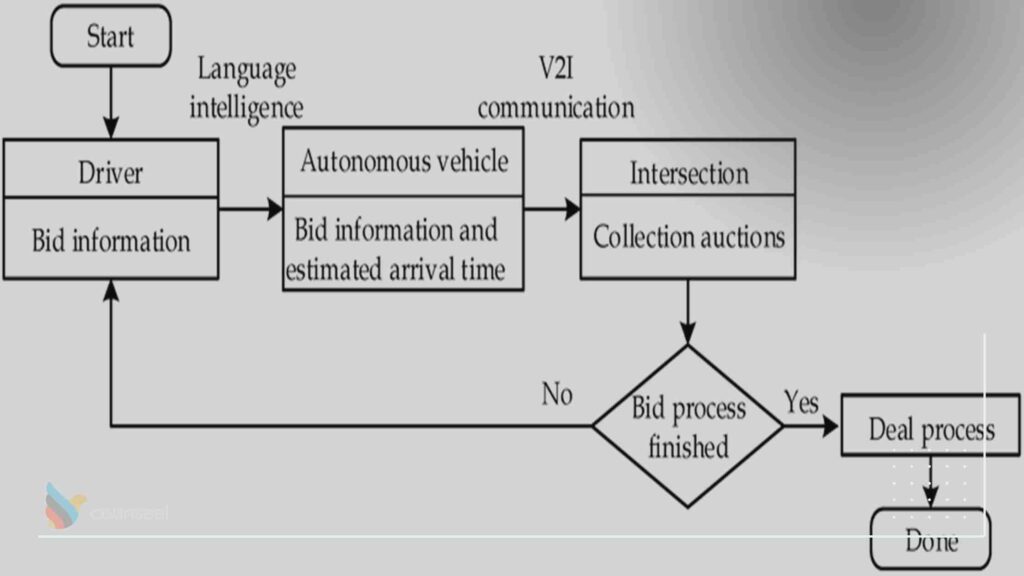
Then comes the most thrilling part of the journey – the bidding process. This can seem daunting, especially if you’re new to the world of online auctions. But, don’t worry. I’ve got your back.
- Start by setting a maximum bid limit. This will prevent you from getting carried away during heated auction battles.
- Keep a close eye on the bid increment. This will help you plan your bids strategically and stay ahead of the competition.
- Finally, make sure to check the auction end time. You wouldn’t want to miss out on your dream car because you lost track of time, would you?
4.Exploring Shipping Options
Once you’ve won the bid, it’s time to bring your dream car home. Auction Export offers a variety of shipping options to Nigeria, catering to different budgets and timelines.
- Roll-on/roll-off (RoRo) shipping is a cost-effective method where vehicles are driven on and off large vessels.
- Container shipping, on the other hand, offers more protection but comes at a higher cost.
Remember, choosing the right shipping method is crucial to ensure the safe and timely arrival of your vehicle.
So, there you have it – a comprehensive guide to navigating the Auction Export website. As you embark on this exciting journey, remember to stay informed, be strategic, and most importantly, enjoy the ride. After all, becoming a car owner should be nothing short of thrilling, right?
Real-Life Experiences: Success Stories of Vehicle Importation via Auction Export

Meet Chukwudi. He’s a car dealer from Aba, and he’s one of the many Nigerians who have successfully harnessed the power of Auction Export to grow their businesses. Chukwudi’s journey started six years ago when he stumbled upon Auction Export while searching for a reliable way to import vehicles from the USA to Nigeria.
With a passion for cars and a knack for business, Chukwudi saw an opportunity in the booming Nigerian auto market. He was determined to provide Nigerians with access to quality used cars from the USA. But, like any entrepreneurial venture, he hit some bumps in the road.
Chukwudi initially struggled with understanding the bidding process on Auction Export, and he was often outbid by more experienced dealers. It took him a few months to get the hang of it. But, with determination and a learning mindset, he mastered the art of bidding. Today, he imports an average of 20 cars every month, contributing significantly to his thriving car dealership.
Common Challenges and Practical Solutions
Chukwudi’s story isn’t unique. Many Nigerians face similar challenges when starting with Auction Export. Let’s address some of these issues and provide practical solutions.
1. Understanding the Auction Process:
The auction process can be daunting for beginners. Auction Export operates a live bidding system, which can be fast-paced and competitive. The key to success here is patience and practice. Start by observing a few auctions to understand the dynamics. Participate in a few low-stake bids to gain experience. Over time, you’ll get a feel for how things work.
2. Shipping and Custom Duties:
Shipping costs and customs duties can be a major concern for many. It’s important to remember that these costs are an integral part of the importation process. To make it less burdensome, consider consolidating your shipments. This means shipping multiple vehicles at once to spread the fixed costs.
3. Vehicle Inspection:
Many Nigerians worry about the condition of the cars they’re bidding on. While Auction Export provides a detailed vehicle condition report, it’s always wise to get a second opinion. Consider hiring an independent inspector to review the car’s condition before bidding.
4. Payment and Safety:
It’s normal to be concerned about the safety of your funds. Auction Export uses secure payment methods, and they have a proven track record of reliability. However, always ensure you’re dealing with the genuine Auction Export website and not a scam site.
So, there you have it. With a bit of patience, practice, and good-old Nigerian resilience, you too can navigate the world of Auction Export successfully. Whether you’re a car dealer like Chukwudi or a private buyer, this platform offers a wealth of opportunities to import quality vehicles from the USA.
Remember, every successful entrepreneur was once a beginner. The key is to embrace the challenges, learn from them, and keep moving forward. Happy bidding!
Diving Into the Depths of Auction Export: Scams and Red Flags
As an entrepreneur, I’ve seen my fair share of businesses that raise a few eyebrows. Auction Export, a platform that allows Nigerians to bid on and purchase vehicles from North America, has been one such business. Some users have expressed concerns about potential scams associated with the service, prompting me to delve further into this matter.
I came across a discussion on Nairaland, Nigeria’s largest online community, where users shared mixed experiences with Auction Export. While some praised the platform for its efficiency and reliability, others raised red flags about delayed deliveries and hidden fees.
If you’re considering using Auction Export, it’s crucial to keep your eyes open for these potential issues. Ask for a comprehensive breakdown of all fees upfront, and follow up regularly on your vehicle’s delivery status.
Trustpilot Reviews: The Good, The Bad, and The Ugly
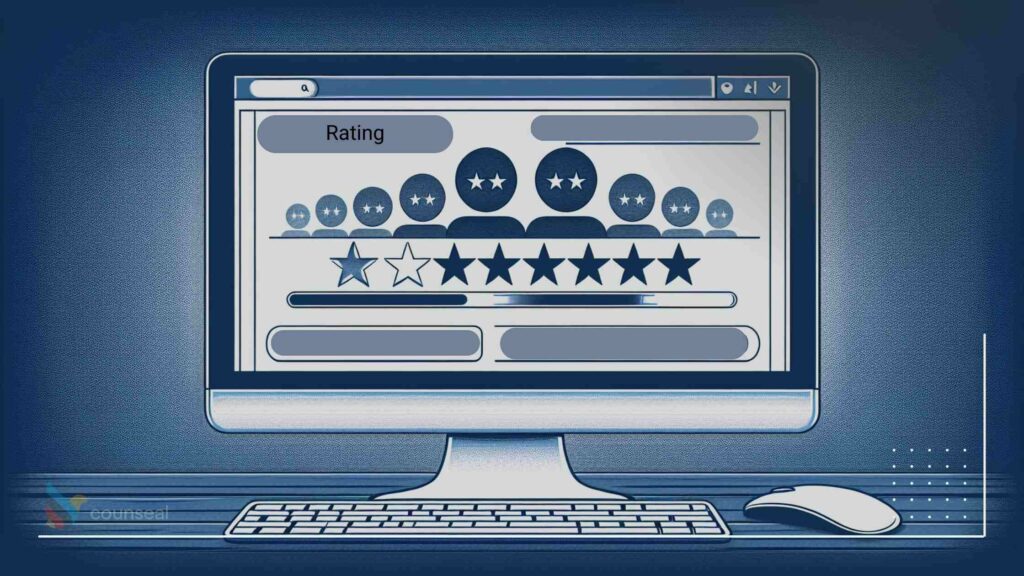
To provide a more balanced view, I also took a deep dive into Auction Export reviews on Trustpilot, a website that hosts reviews for businesses worldwide.
The overall rating for Auction Export on Trustpilot is 3.6 out of 5, based on over 200 reviews. This score indicates a satisfactory level of service but suggests there is room for improvement.
The positive reviews praised Auction Export for its prompt customer service and smooth transaction process. Customers appreciated the transparency of the bidding process and the quality of the vehicles they received.
However, the negative reviews painted a different picture. Some customers reported issues with late deliveries and communication breakdowns. There were also complaints about hidden costs that were not disclosed at the initial stages of the transaction.
In response to these reviews, Auction Export often provided explanations and offered solutions, which is an encouraging sign of a company willing to address customer concerns.
The Bottom Line
While Auction Export has its share of positive reviews, the concerns raised by users cannot be ignored. As with any business, it’s vital to do your due diligence before engaging with their services.
Remember, in business, as in life, not all that glitters is gold. So, keep your eyes open, ask the right questions, and always stay informed.
As the Founder of Counseal, with over 6 years of experience helping Nigerian entrepreneurs to start and grow their businesses, I cannot emphasise enough the importance of research and vigilance when dealing with international transactions. The risk is real, but with the right precautions, it can be managed.
So, is Auction Export a scam? Based on the information at hand, it doesn’t appear to be. But, like any business venture, there are risks involved. Therefore, it’s always wise to tread carefully and be informed at all times.
Legal and Documentation Requirement
Alright, let’s dive right in. As an entrepreneur in Nigeria, you probably understand the value of owning a vehicle for your business. But do you know the legalities involved in importing one?
The Nigerian government, through the Nigeria Customs Service (NCS), has established regulations for importing vehicles. In simple terms, you can’t just ship a car from abroad and expect to drive it on Nigerian roads without following certain rules.
Firstly, it’s important to note that only vehicles less than 15 years from the year of manufacture are allowed into Nigeria. And yes, you heard that right. That 1960 classic Chevy you’ve been eyeing might just have to remain a dream.
Secondly, the vehicle must be Left Hand Drive. This isn’t just an arbitrary rule, it’s for safety reasons given that we drive on the right side of the road in Nigeria. So, no matter how sleek that Right Hand Drive vehicle looks, it’s a no-go area.
Customs Clearance: The Vital Paperwork and Procedures
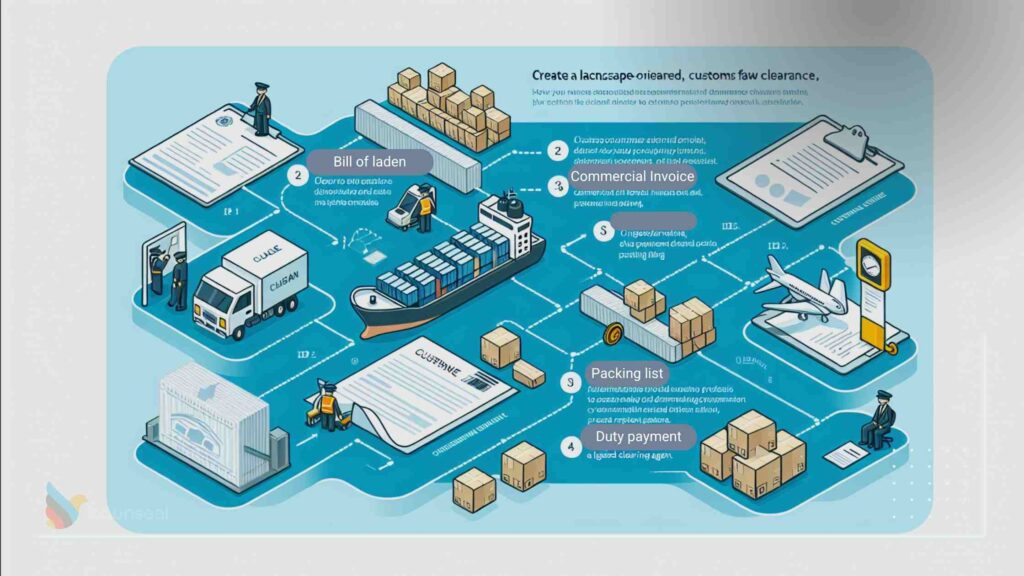
Now, let’s talk about customs clearance. The process can be as smooth as freshly churned pounded yam if you understand the necessary paperwork and procedures. Here’s what you need to know:
- Bill of Lading: This is a document issued by the shipping company, detailing the type of vehicle, the shipper’s details and the consignee’s details. Think of it as the vehicle’s travel ticket.
- Commercial Invoice: This is provided by the seller of the vehicle. It contains information such as the price, the terms of sale and the description of the vehicle.
- Packing List: This indicates what exactly is being shipped, including spare parts if any.
- Duty Payment Receipt: This shows that you’ve paid the necessary import duty to the NCS.
Once you have these documents, the next step is to engage a licensed clearing agent who will handle the customs clearance for you. Remember, you don’t have to do this alone.
Tax Implications
And then comes the tax part. What are the tax implications of importing a vehicle into Nigeria? Well, buckle up because we’re about to take a ride into the world of taxes.
Import duties for vehicles in Nigeria can range from 35% to 70% of the vehicle’s value, depending on its type and age. For example, a saloon car that’s less than 1500cc attracts a 35% duty, while one that’s above 1500cc attracts a 40% duty.
In addition to the import duty, there’s also a 7.5% Value Added Tax (VAT) to be paid. Yes, the taxman has got to get his cut.
But remember, these taxes contribute to the government revenue which is used to provide public services. So, while it might feel like a pinch, it’s for the greater good.
In conclusion, importing a vehicle in Nigeria does require some level of dedication, knowledge, and planning. But with the right information at your fingertips, you’re well on your way to navigating this process like a pro. Happy importing!
Expert Tips and Recommendations
As an entrepreneur, you’re probably aware that one of the key factors in a successful export business is selecting the right vehicle. Now, you may wonder, what exactly makes a vehicle ‘right’ for export? Well, there’s no one-size-fits-all answer to this. It depends on a variety of factors such as your target market, cost-effectiveness, and the vehicle’s condition.
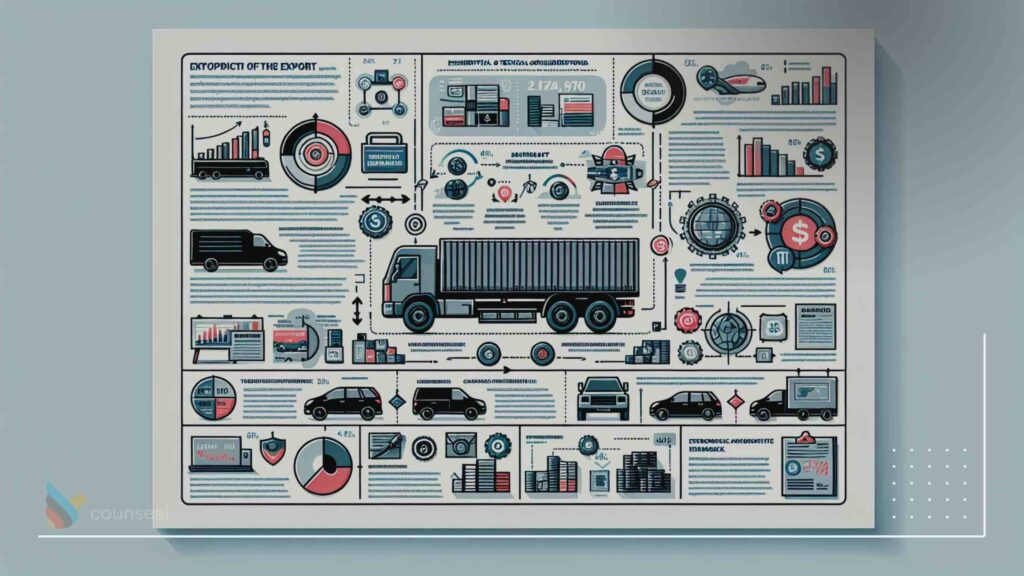
Know Your Market
First things first, you need to understand your target market. What types of vehicles are in demand in the countries you’re exporting to? Is there a preference for luxury cars or practical, fuel-efficient vehicles? Are larger vehicles or compact cars more popular? Answering these questions will help you focus your vehicle selection on what’s most likely to sell and turn a profit.
Weighing the Costs
The next factor to consider is cost-effectiveness. With every vehicle you consider, you need to calculate the potential ROI. Take into account the purchasing price, shipping costs, taxes, and any necessary repairs or modifications. A profitable export vehicle is one that, even after considering all these costs, can still be sold at a competitive price in its target market.
Don’t Neglect the Condition
Finally, the vehicle’s condition is of prime importance. A vehicle in poor condition might come at a lower cost, but the expenses for repairs and maintenance can quickly add up, chipping away at your profit margin.
Importance of Inspections and Condition Reports
It’s one thing to select a vehicle based on market demand and cost, but it’s another to ensure it’s in a condition that warrants export. That’s where inspections and condition reports come in.
Before you finalise any vehicle for export, it’s essential to have it thoroughly inspected. This includes checking the engine, transmission, brakes, tires, and any other major systems. A detailed condition report can help you spot any potential issues that could lead to costly repairs down the line.
A comprehensive inspection and condition report not only helps you avoid unwelcome surprises but also aids in making informed decisions. You’ll know exactly what you’re getting into, and you can negotiate a better deal if there are any issues that need addressing.
Navigating the Shipping Logistics
Once you’ve selected a vehicle and ensured it’s in top-notch condition, the next challenge is getting it to its destination. Shipping logistics can be complex, especially if you’re new to the export business. But don’t worry, we’ve got you covered.
Choosing the Right Route
The shipping route you choose largely depends on your destination country. Some routes might be shorter and therefore cheaper, but they may also be more prone to delays due to weather conditions or port congestion. Weigh the pros and cons of each route to decide the best one for your shipment.
Calculating the Costs
Shipping costs can vary greatly depending on the size and weight of the vehicle, the shipping route, and the shipping method (RoRo or container shipping). Be sure to factor in all these elements when calculating your costs. Remember, the cheapest option isn’t always the best. It’s crucial to balance cost with reliability and timeliness to successfully deliver your vehicle.
Remember, embarking on an auction export venture in Nigeria can seem daunting, but with the right knowledge and preparation, it can be a profitable business move. Keep these tips in mind, and you’re well on your way to making more informed decisions and ultimately, driving your business forward.
Auction Export in Nigeria: Sailing Schedule
As a Nigerian entrepreneur, you’re probably keen on exploring new opportunities in the import and export business. A significant part of the process is understanding the sailing schedule for shipments, especially if you’re dealing with Ghana and Nigeria routes. So, let’s dive right into it.

Sailing Schedule: What Does It Mean?
First things first, what does a ‘sailing schedule’ mean? In simple terms, this is a published timetable that shipping lines provide, detailing their planned sailings. It’s crucial for businesses like yours to plan and coordinate your logistics effectively.
The Importance of a Sailing Schedule
Why is the sailing schedule so important, you ask? Well, it’s all about timing. In the world of business, time is money. A well-coordinated sailing schedule means you know exactly when your shipment will arrive, allowing you to plan your business operations accordingly.
Imagine this: You’ve got customers eagerly waiting for your goods, but the shipment is delayed. Not a good look, right?
Case Study: The Impact of Sailing Schedules on Business
Before we proceed, let’s take a look at a case study. In 2018, a Nigerian business dealing with auction exports faced a significant challenge. The shipments were delayed due to a change in the sailing schedule that the business owner wasn’t aware of.
The result? A huge loss in sales and a dip in customer satisfaction. Not what you want for your business, right?
The Solution: Stay Updated
The solution to this problem is simple but crucial: Stay updated. Keep a close eye on the sailing schedules of the shipping lines you’re dealing with. This way, you’ll be prepared for any changes and can adjust your business operations accordingly.
So, there you have it. A quick but in-depth guide to understanding the sailing schedule for auction export in Nigeria. Remember, a well-planned shipment is a successful shipment. Happy sailing!
Frequently Asked Questions
1. How Can I Use the Auction Export Website?
- Registration: Create a n account on the Auction Export website.
- Search and Filters: Use search filters to narrow down your vehicle preferences (make, model, year, etc.).
- Bidding Process: Understand how to place effective bids.
- Shipping Options: Explore available shipping methods to Nigeria.
2. Is Auction Export Reliable and Trustworthy?
- Some users have raised concerns about potential scams associated with Auction Export. However, it’s essential to evaluate both positive and negative experiences.
- Check out customer reviews on platforms like Trustpilot.
3. What Legal and Documentation Requirements Should I Be Aware Of?
- Understand Nigeria’s import regulations for vehicles.
- Familiarise yourself with customs clearance procedures and necessary paperwork.
- Consider tax implications related to vehicle importation.
4. What is Auction Export, and How Does It Work?
Auction Export is a platform that facilitates the export of North American cars to Nigeria and other countries. Here’s how it works:
- Buyers can participate in live auctions to bid on vehicles.
- The platform offers both salvage vehicles and clean title cars.
- After winning a bid, Auction Export handles the transportation process, combining inland and ocean shipping for delivery.
5. Is Auction Export Reliable and Genuine?
Auction Export has gained credibility over the years. Here’s why:
- It holds a BBB (Better Business Bureau) certification, indicating trustworthiness.
- Numerous successful transactions have taken place through the platform.
- Positive reviews from Nigerian buyers attest to its reliability.
6. What Are the Advantages of Using Auction Export?
Nigerian buyers benefit from Auction Export in several ways:
- Access to North American Wholesale Market: Buyers can explore a wide range of vehicle options.
- Variety of Choices: From Toyota to Ford, there’s something for everyone.
- Reliable Shipping Services: Auction Export ensures safe and timely delivery.
- Transparency and Trust: The platform maintains transparency throughout the process.
7. Are There Risks When Buying Cars Through Auction Export?
While Auction Export offers great advantages, buyers should be aware of potential risks:
- Business Risks: The auction system inherently involves risks.
- Fairly Used Cars: Some vehicles may be older or have wear and tear.
- Due Diligence: Buyers must research and verify details before bidding.





